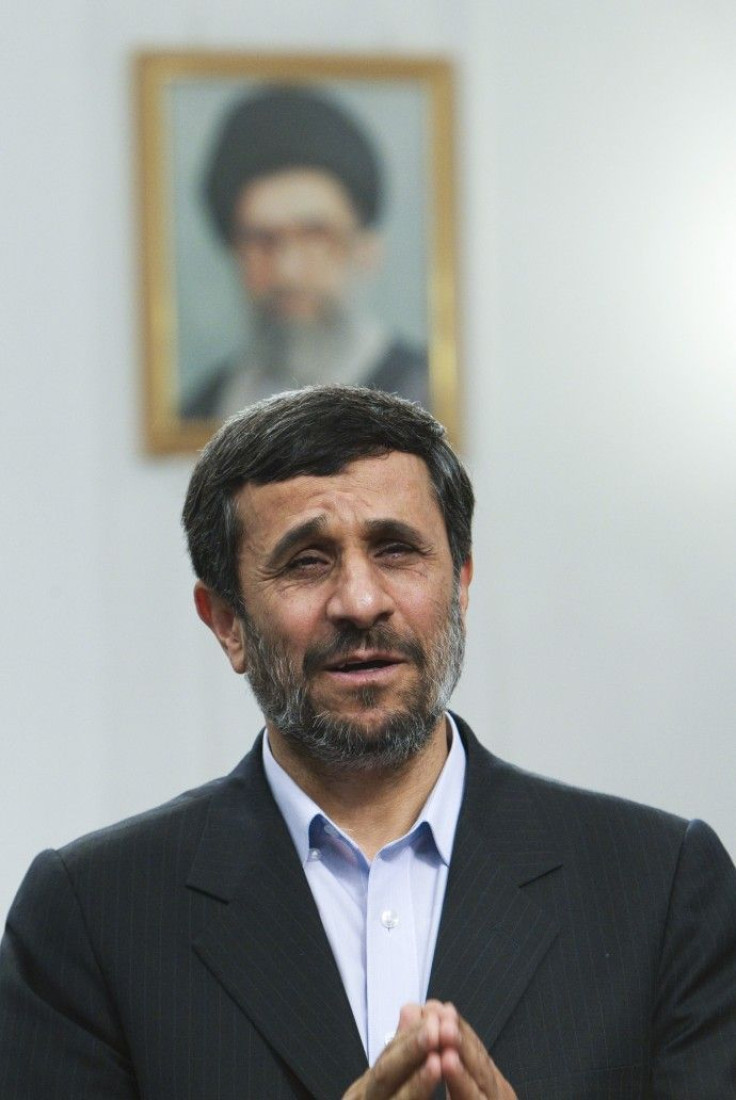Big powers leave Iran nuclear talks empty-handed

World powers failed to prise any change from Iran in two days of talks on its nuclear program, with the EU and United States calling the discussions disappointing and saying no further meetings were planned.
This is not the conclusion I'd hoped for, European Union foreign policy chief Catherine Ashton said at the end of the talks in Istanbul on Saturday. I am disappointed.
That was echoed by a senior U.S. official, but he said talks had not broken down and been very businesslike, but difficult.
The best that the six world powers -- the United States, France, Germany, China, Russia and Britain -- can hope for is that Iran rethinks its position, once chief negotiator Saeed Jalili reports back to Tehran.
We now wait to hear... whether Iran will respond on reflection, said Ashton, the lead negotiator for the six world powers.
An aide to Jalili told Reuters that there would be another round of talks, even if the timing and venue were undecided. But Ashton said further talks depended on a more constructive approach from Tehran.
The process can go forward if Iran chooses to respond positively, she said. The door remains open. The choice remains in Iran's hands.
The powers have offered a nuclear fuel swap that would effectively reduce Iran's reserves of low enriched uranium to levels too small to be used to make a bomb. But Iran would have to drop pre-conditions for a deal to happen.
We proposed the possibility of an experts-level discussion of the details... The Iranians at this stage are not prepared to do that, we came back to the issue of preconditions, the U.S. official said.
The West suspects Iran wants to develop nuclear weapons while Tehran says its atomic energy program is peaceful.
The standoff has dragged on for eight years and expectations were low heading into the Istanbul talks.
SANCTIONS STICK
Tensions escalated in 2010, with the United Nations imposing new sanctions, and a meeting between the two sides in Geneva last month was the first in more than a year.
On the upside, the U.S. official said the six powers had shown more unity and coordination in Istanbul than in any earlier round.
But the failure to make headway showed increasingly tough sanctions on Iran, a major oil producer, have had little effect in persuading the Islamic state to cooperate more, though analysts say the Iranian economy is hurting.
Asked by reporters about the possibility of more sanctions, the U.S. official told reporters; I don't want to speculate on what decisions will get made. There are certainly options there for the pressure track.
U.S. Secretary of State Hillary Clinton this week told U.S. network ABC that the Obama administration may propose new unilateral measures against Iran.
Russia and other countries with strong trade ties with Iran say this unilateralism is counterproductive.
FUEL SWAP CARROT
Iran has ignored U.N. Security Council resolutions demanding it suspend enrichment, with trade and other benefits offered in return, and refused to grant unfettered access for U.N. nuclear inspectors.
But from the outset in Istanbul, Iran put preconditions deemed unacceptable by the powers, including lifting of sanctions and recognition of its right to enrich uranium and a nuclear fuel cycle.
Any kind of talks and cooperation, as I underlined during the talks with Mrs Ashton, should be based on respecting the nations' rights... including Iran's right to nuclear technology, Jalili said at the end of the talks.
Uranium enriched to a low degree yields fuel for electricity or, if refined to a high level, the fissile core of a nuclear bomb.
Ashton proposed that Iran sends abroad 2,800 kg of low-enriched uranium (LEU) and 40 kg of higher-grade material, according to one Western diplomat.
Iran would be supplied with highly processed fuel to keep a Tehran reactor that makes medical isotopes running, under a deal that is revised version of an offer first made in 2009.
The powers want to prevent Tehran from accumulating enough material for a nuclear weapon while negotiations proceed on a broader solution to the crisis.
What we wanted to do was to leave behind in Iran roughly what had been left behind when we made the original proposal -- that is to say a level some way short of what you need to make a weapon, the western diplomat said.
© Copyright Thomson Reuters 2024. All rights reserved.











